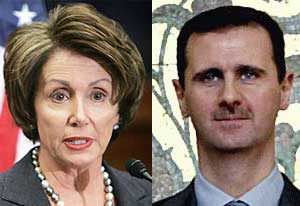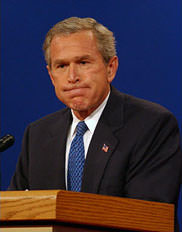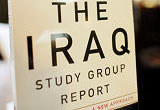Marie Cocco: Wait-and-Walk
Shortly after the November midterm elections, former Secretary of State James Baker, the Bush family fixer anointed to patch up U.S. policy in Iraq, is going to announce what everyone else already knows: It's time to pull out.WASHINGTON — So what shall we call it?
Former Secretary of State James Baker, the Bush family fixer who has been called upon to patch up the shattered U.S. policy in Iraq, hints at the circumlocutions we will hear when his Iraq Study Group reports, conveniently after November’s midterm congressional elections, that the United States somehow must extricate itself from the bloody failure. “We’re going to try very hard to stay away from the political terms, ‘change the course, stay the course,’ and that stuff,” Baker said Sunday on ABC-TV’s “This Week.”
How about wait-and-walk?
That sums up what appears to be the emerging Republican alternative to the deadly intransigence of the Bush White House. The wait is the wait until after the elections of Nov. 7. Until then, Republican candidates will accuse any Democrat who seeks a reasonable alternative to the current misadventure in Iraq of being a weak-kneed advocate of “cut and run.”
The walk is the slow withdrawal of American troops — call it a redeployment, if you will — that is almost certain to come once Baker and his commissioners report what most Americans already know: That our military presence in Iraq isn’t preventing the country from descending into violent chaos. That it isn’t helping the Iraqi government become functional. That the Iraq conflict is, in fact, as the National Intelligence Estimate puts it, “the ’cause celebre’ for jihadists, breeding a deep resentment of U.S. involvement in the Muslim world and cultivating supporters for the global jihadist movement.”
The first articulation of wait-and-walk came from Republican Sen. John Warner of Virginia, the respected chairman of the Armed Services Committee, whose trenchant exchanges with Pentagon brass at his panel’s hearings these past few months suggested his growing impatience. Warner returned from Iraq last week to stun political Washington with his off-message message: Iraq is “drifting sideways,” he said, and the U.S. should, “in two or three months” (note the timetable) consider a “change of course.” As for our military presence in Iraq, Warner said he would take nothing “off the table.” It must be assumed this would include a gradual drawdown of troops.
Sen. Olympia Snowe (R-Maine) endorsed Warner’s assessment. “We must be willing to reassess and rechart our future military presence in Iraq and seriously consider input from all groups, including the bipartisan Iraq Study Group,” she said in a statement.
So Baker again extends his wise old hand to rescue the president — and his party — from a great folly for which Americans have paid so much in blood and treasure. His bipartisan commission seems headed toward a call for some sort of negotiated settlement, drawing in the key regional actors — Iran and Syria included, Baker says. The apparent goal would be to at least strike an agreement to prevent a civil war from bursting beyond Iraq’s present borders and becoming a conflagration involving Sunni and Shiite factions throughout the Middle East.
This is the course that academic and other experts on the Middle East have been advocating. It also bears a striking similarity to the approach promoted by a certain prominent American politician more than two years ago.
That was Massachusetts Democrat John Kerry.
“We still have an opportunity to prevent Iraq from becoming a failed state and a haven for global terrorists and Islamic extremists,” Kerry wrote in a Washington Post Op-Ed article that appeared on July 4, 2004. The Democratic presidential nominee called for a change of course in Iraq that would give economic incentives to draw in estranged European allies, who might then agree to a peacekeeping role for NATO troops. He proposed a regional diplomatic conference with Iraq’s neighbors, with the goals of keeping borders intact, preventing outside interference in Iraq’s internal affairs and protecting minorities.
Many of these ideas from Kerry’s presidential campaign were included in his plan, co-authored with Wisconsin Democrat Russ Feingold, to gradually redeploy U.S. troops by July 1, 2007. It specifically called for a regional diplomatic conference including Iraq’s neighbors and other Arab states.
The measure was voted down, 86-13, in June. Republicans cried “cut and run.” Most Democrats cowered.
I cannot predict how much the Baker plan will resemble the Kerry plan. The whispers and hints we’ve heard so far suggest something equivalent. We should all grasp a feasible way out of Iraq when it comes. But doing so will not bring back those who have perished these past two years. Nor will it expunge the guilt we bear from the failure to act sooner.
Marie Cocco’s e-mail address is mariecocco(at symbol)washpost.com.
Your support matters…Independent journalism is under threat and overshadowed by heavily funded mainstream media.
You can help level the playing field. Become a member.
Your tax-deductible contribution keeps us digging beneath the headlines to give you thought-provoking, investigative reporting and analysis that unearths what's really happening- without compromise.
Give today to support our courageous, independent journalists.




You need to be a supporter to comment.
There are currently no responses to this article.
Be the first to respond.